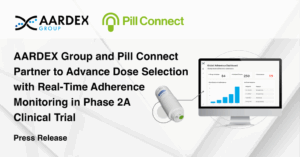You’ll often hear the terms “adherence” and “compliance” used as if they mean the same thing. But in healthcare and clinical research, they carry very different meanings. Understanding that difference can change the way we work with patients, design better trials, and ultimately generate more meaningful data.
Compliance as a passive model
“Compliance” usually describes a patient simply following their doctor’s instructions. It’s a one-way street where the provider tells, and the patient obeys. This concept has shaped clinical research for decades.
But the problem is, compliance ignores how people actually behave. It doesn’t consider personal routines, beliefs, or motivations. In reality, medication-taking is rarely that simple.
Adherence is a collaborative approach
“Adherence” takes a different view. It sees the patient as an active partner in their treatment. It’s based on trust, shared decisions, and ongoing support. Adherence means recognizing that patients are people with real lives, not just subjects in a trial.
When we talk about adherence, we’re looking at the whole picture: when patients start a medication, how well they stick to it, and when or why they stop. That perspective helps us make better choices in how we run trials and measure outcomes.
Why the difference matters
If you measure only compliance, you get a narrow view. Adherence gives you a full behavioral picture. That matters when you’re designing interventions or explaining variability in trial results.
When we focus on adherence, we use tools like MEMS AS with reminders and real-time feedback. These are more effective than relying on patients to simply “comply.” And regulators like the FDA and EMA increasingly expect sponsors to account for adherence in their data. The latest example is “Insights from the European Medicines Agency on digital health technology derived endpoints”, published in June 2025.
The role of technology
At AARDEX Group, we’ve embraced this shift. Our MEMS technology is built to track medication-taking behavior as it happens. That data helps sponsors and researchers understand where things go off track and more importantly, how to fix them.
Words make a difference. Talking about adherence instead of compliance shows respect for patients and a smarter approach to research. In today’s clinical trials, it’s not just the better word it’s the better strategy.
Discover how AARDEX solutions are built around adherence, not only compliance, to empower patients and deliver more accurate data.



